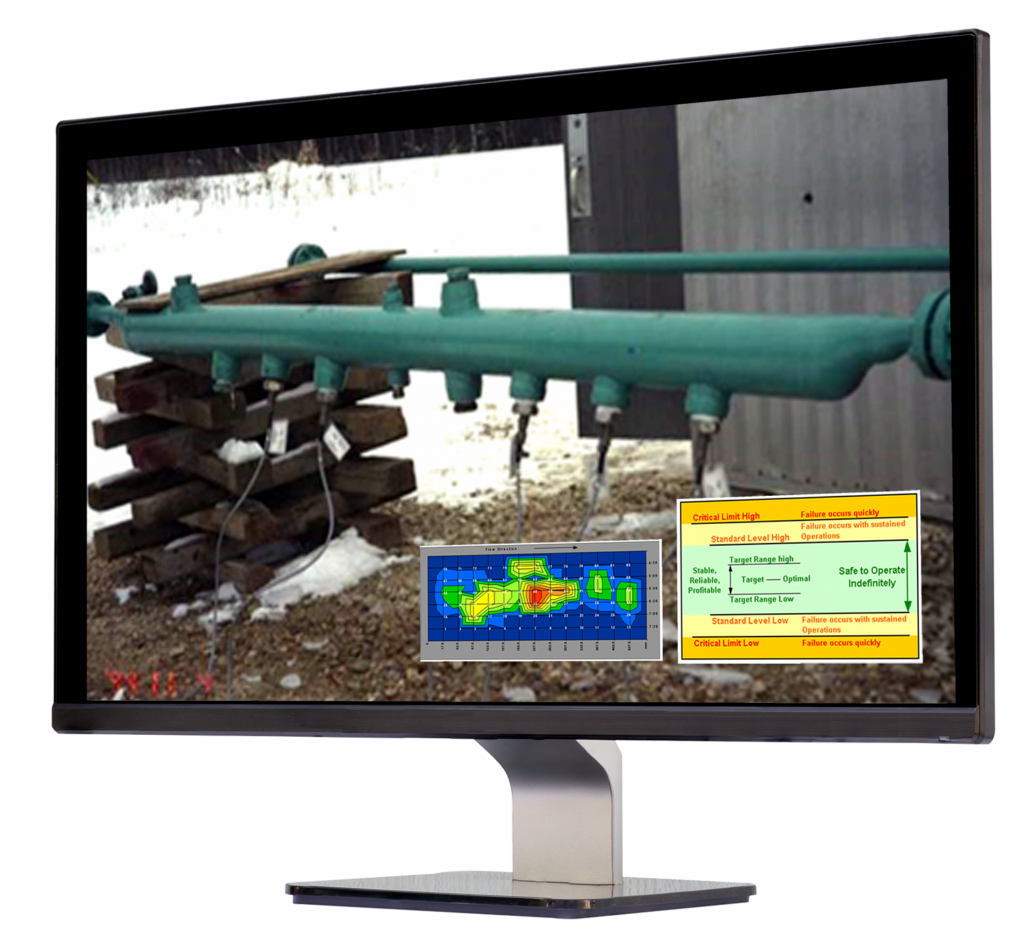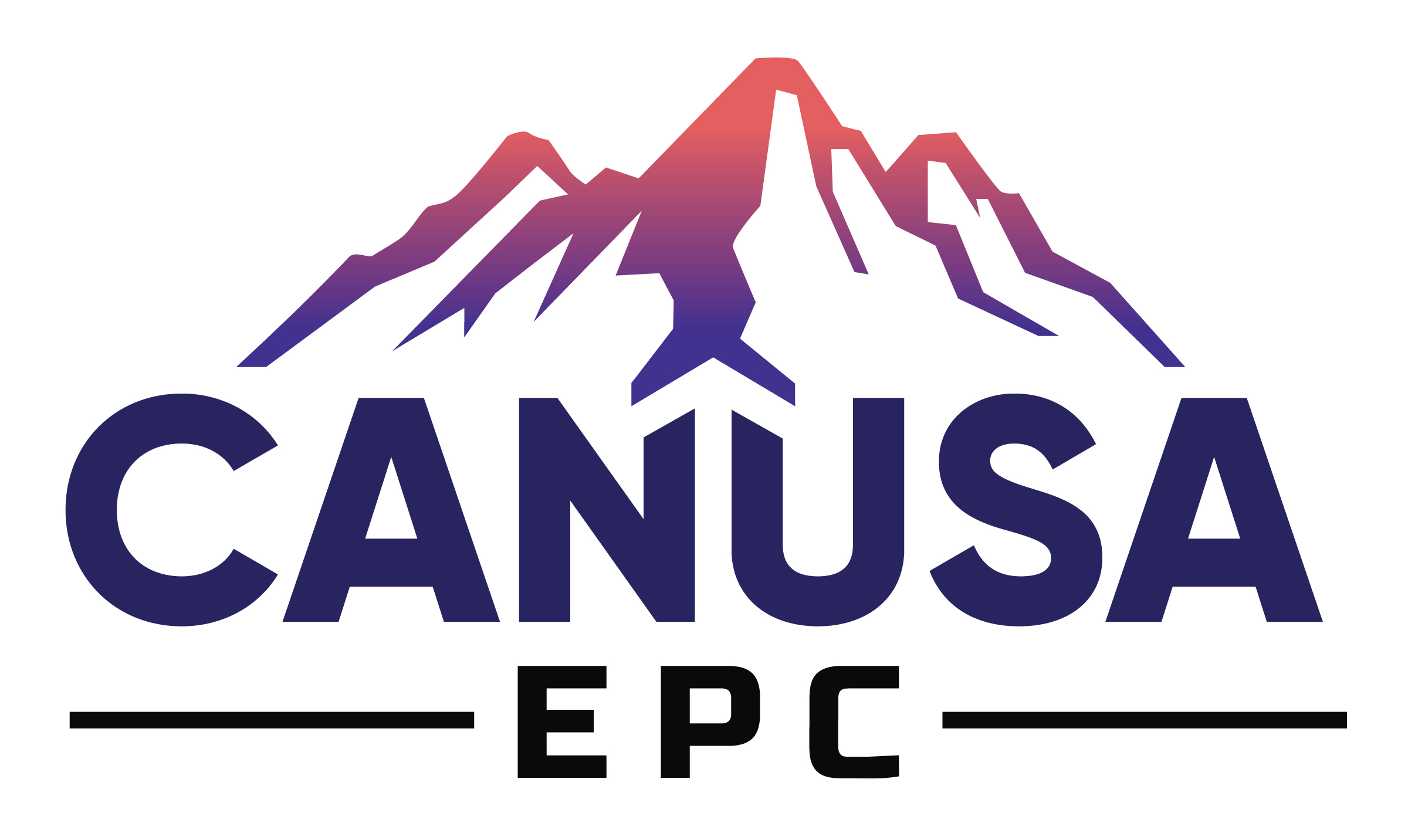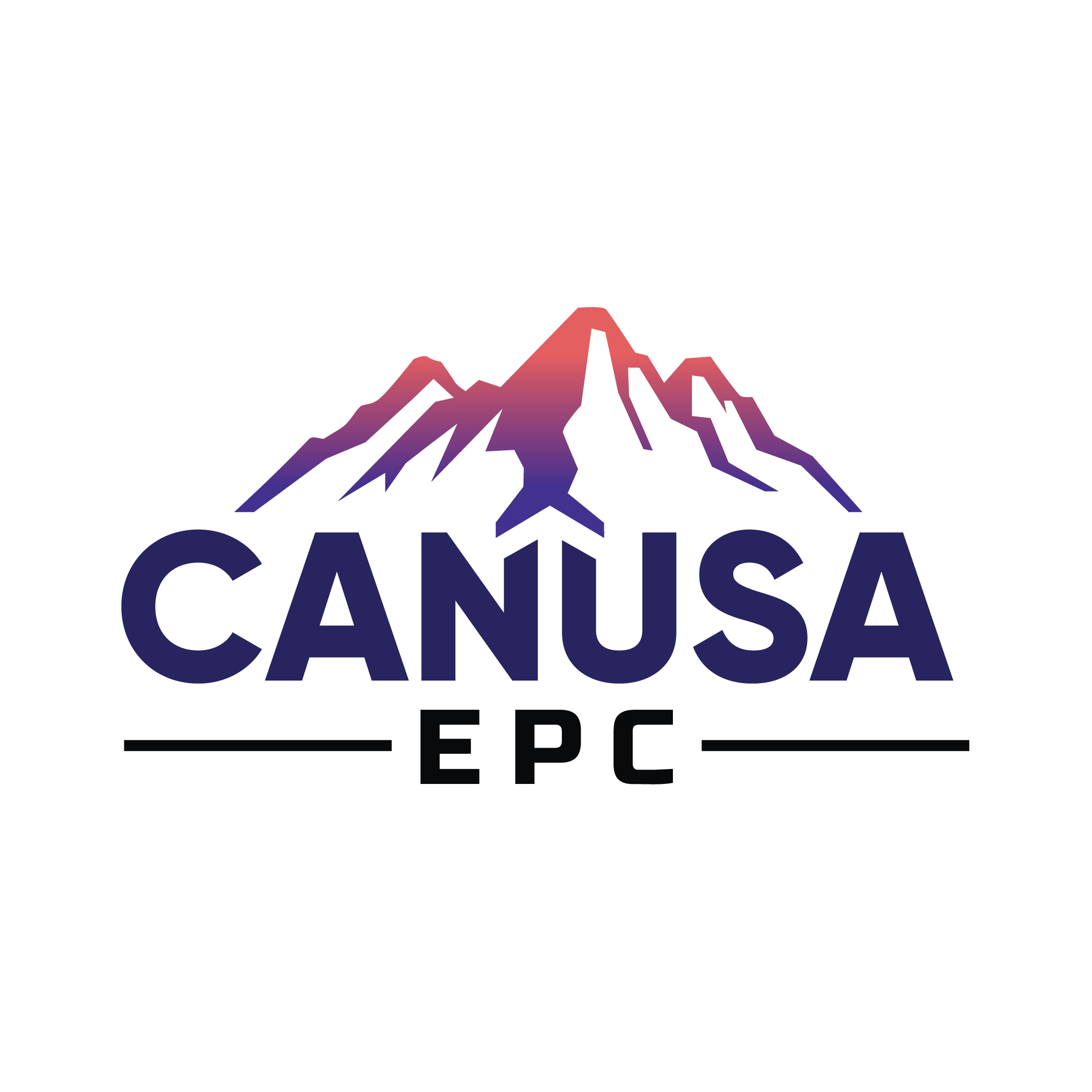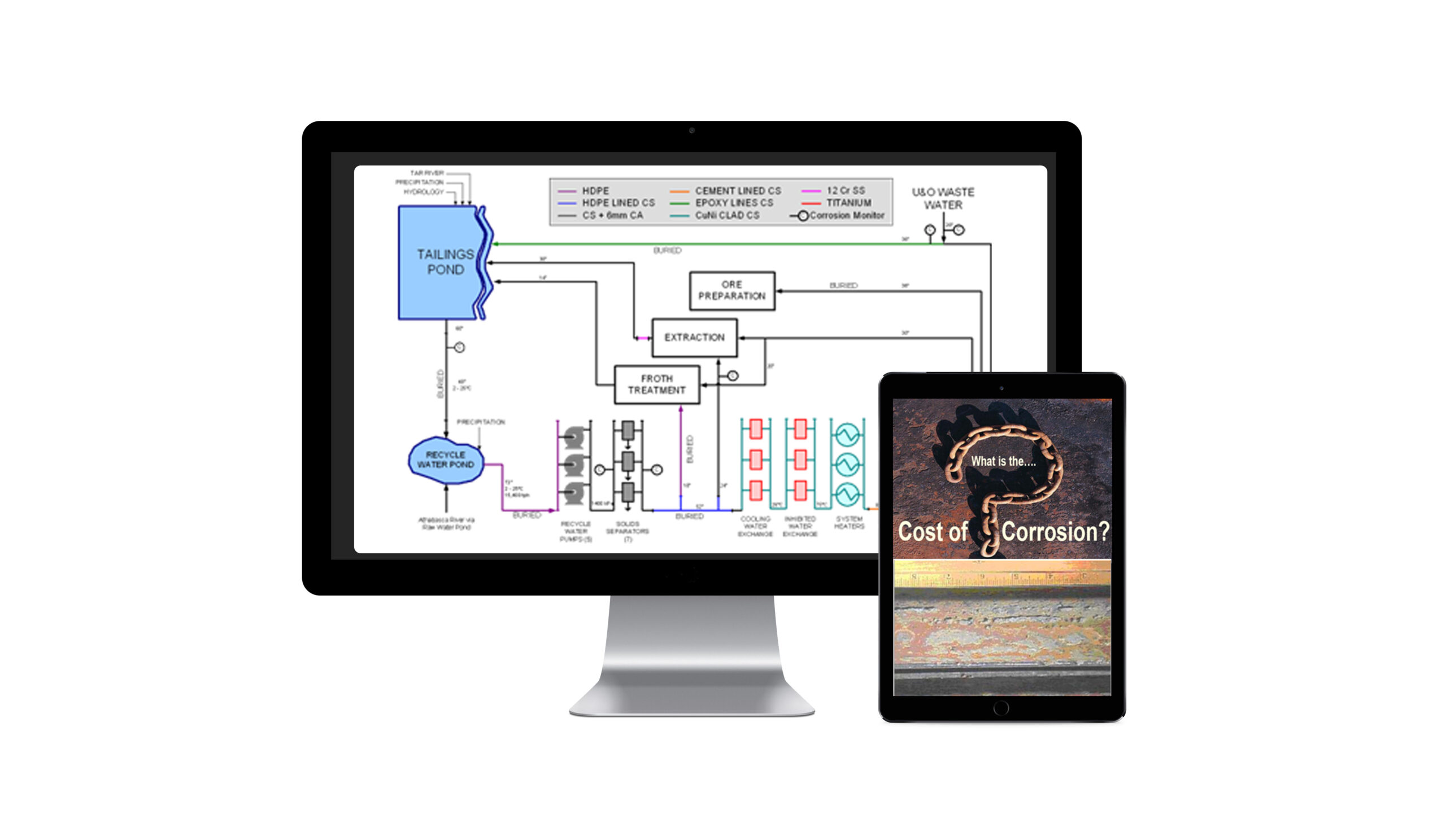LUNCHBOX LEARNING
Corrosion Control for Upstream & Midstream Facilities
Held online via Zoom
4-Part Series
Mar. 30, Apr. 27, May 18 & June 15
12:00 PM – 1:30 PM (MST)
Free to attend

OVERVIEW
Over 4 modules, Sandy Williamson, P.Eng., will focus on corrosion in energy/petroleum plants and facilities:
- Corrosion Fundamentals – Understanding the threat and associated costs
- Corrosion Control in My Plant – How to mitigate the threat
- Corrosion Inspection & Monitoring – Are my control methods making an impact?
- Corrosion Control Manual – Developing a proactive corrosion management program
Lectures are 1-hour in length, with 30 minutes for questions. See below for a detailed overview of each module.
IDEAL COURSE FOR:
- Engineering Disciplines – Process, Operations, Maintenance, Inspection
- Project Management
- Operations Personnel
LEARNING OUTCOMES:
- Identify corrosion and cracking mechanisms that may be impacting your equipment
- Understand how different materials can control corrosion problems in your facilities
- Learn various inspection technologies commonly used to detect corrosion
- Determine how to get the most value out of a corrosion control program
PRICE: $0 – Sponsored by SIGIT
DATES: Mar. 30, Apr. 27, May 18 & June 15
Register once and choose to attend one or all!
TIME: 12:00 PM to 1:30 PM (MST)
ONLINE SESSION: Delivered via Zoom
COURSE OUTLINE
Gain a better understanding of the threats and impacts that different corrosion and cracking mechanisms may have to your equipment and piping. This module lays the foundation for the next modules.
LEARNING OUTCOME:
Review typical direct and indirect corrosion costs. See examples of the most common corrosion and cracking mechanisms that affect upstream and midstream oil and gas facilities.
This module will explain the relative material performance for common metals and alloys used in upstream/midstream facilities. Non-metallic solutions and protective coatings will also be discussed. Finally, corrosion control using corrosion inhibitors will be explained.
LEARNING OUTCOME:
Learn how different materials (metals and non-metals), coatings and corrosion inhibitors can control various corrosion problems in upstream/midstream facilities.
This module will discuss various inspection technologies that are commonly used to detect corrosion in vessels and piping. Onstream corrosion monitoring techniques will also be discussed.
LEARNING OUTCOME:
Gain clarity on where to use particular inspection or monitoring techniques when measuring wall thickness of vessels or piping systems; ultimately preventing loss of containment.
Discover why a corrosion control manual is the most important “tool” for a corrosion engineer or inspector to have in maintaining a facility’s assets.
LEARNING OUTCOME:
The ingredients of a proactive corrosion management program will be explained. A typical corrosion control manual will be used to demonstrate how to get the most benefit from a corrosion manual.

CORROSION EXPERT & ENGINEERING SPECIALIST
Sandy Williamson, P.Eng., is President of Williamson Integrity Services, and Technical Specialist in corrosion, materials, and inspection technologies related to oil and gas production, refining and geothermal industries. He has 43 years of industry experience, with a mission to promote awareness of corrosion technologies, material sustainability, and material stewardship to reduce the cost of corrosion. He helps clients achieve significant cost savings and more reliable operations.
Prior to founding Williamson Integrity Services, Sandy spent 18 years at Shell Canada, and held the role of President of Ammonite Corrosion Engineering for nearly 20 years. He has been a member of NACE International/AMPP for 43 years and was President of the organization in 2016/17.
FREQUENTLY ASKED QUESTIONS
All course participants will receive a signed Course Completion Certificate that you may use towards your professional engineering accreditations – receiving 1 hour total.
This course is designed especially for those in Engineering disciplines, project management and operations, at an entry level.
Online courses are recorded for internal purposes; recordings will not be circulated to registrants.


